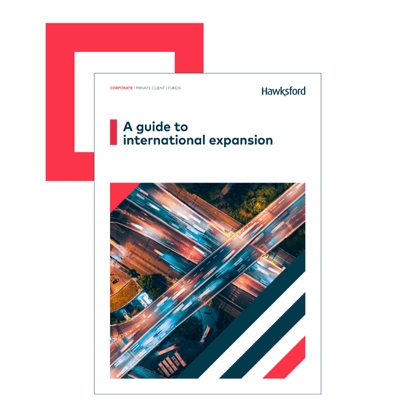If you’re operating a company in Singapore, corporate tax filing is a mandatory and crucial compliance obligation.
You will have until 30 November 2025 to submit your corporate income tax (CIT) returns for the Year of Assessment (YA) 2025. Missing this deadline can result in a penalty of up to SG$5,000.
In fact, according to the Inland Revenue Authority of Singapore (IRAS), one in ten companies typically fail to meet their corporate tax filing (CIT) obligations each year.
The following tips will guide you through preparing the necessary documents and meeting the deadline ahead of time:
- File the correct Income Tax Return (ITR)
- Provide a full set of financial statements
- Engage an accredited tax agent
- Comply with withholding tax obligations
- Maximise tax deductions
- Prepare adequate supporting documents
- Tap on the Enterprise Innovation Scheme (EIS)
- Claim accelerated capital allowances on fixed assets
- Claim start-up tax exemption (SUTE) for newly incorporated companies
- Register for the goods and services tax (GST)
1. File the correct Income Tax Return (ITR)
Given that there are three different types of ITRs: Form C, Form C-S and Form C-S (Lite), checking that you’re filing the correct ITR can help to ensure a timely submission. If your annual revenue is SG$5 million or less, you can file the simpler Form C-S.
For revenues SG$200,000 or below, you may file the Form C-S (Lite). Other qualifying conditions for the Form C-S and Form C-S (Lite) include deriving only income taxable at the 17% rate and not claiming carry-back of allowances or losses, group relief, investment allowance or foreign tax credits.
It is otherwise mandatory to file the full Form C if you do not meet the simplified-return criteria. You will then be required to provide complete financial statements, tax computation and all supporting documents with the return.
2. Provide a full set of financial statements
Your financial statements will need to be prepared in accordance with the Singapore Financial Reporting Standards (FRS). This includes comprehensive income statements, balance sheets and cash flow statements, which are essential for accurate tax reporting.
3. Engage an accredited tax agent
One of the fields to be completed in the tax return is whether the ITRs have been reviewed by an accredited tax practitioner or advisor. Having your ITRs filed or reviewed by an accredited tax professional would give the IRAS assurance on the thoroughness of the ITRs filed. Accredited tax professionals are also in a better position to help you navigate regulations and confirm adherence to filing requirements in Singapore.
4. Comply with withholding tax obligations
Specific payments such as interest, royalty, service/technical fees, lease payments made to non-resident persons (companies and individuals) may attract withholding tax. If there are such payments, it is important you have complied with the relevant withholding tax obligations. Failure to do so or late filing may result in penalties of up to 20% being imposed on your company. If you are unsure, do not hesitate to speak to your tax agent on this.
If you have applied reduced rates under a double taxation agreement (DTA), you are required to submit the certificate of residence (COR) to the IRAS within the due date. The IRAS will otherwise reinstate the withholding tax to domestic rates and impose penalties on the shortfall.
5. Maximise tax deductions
Certain business expenses may qualify for additional or further deductions. For example, cash donations to approved charities qualify for 250% deduction while qualifying expenses incurred on overseas travel for trade fairs or exhibitions is applicable for a double tax deduction. You may consult our team to verify if your documents are adequate and proper to proceed with the claims.
6. Prepare adequate supporting documents
The IRAS requires all businesses to keep adequate supporting documents or receipts to support the deduction claims of expenses. This includes maintaining detailed records of business expenses, which can be crucial during audits.
For example, if your company has substantial business entertainment expenses, in addition to the receipts/invoices, you will need to include details of the persons/clients involved.
7. Tap on the Enterprise Innovation Scheme (EIS)
The EIS is a tax incentive scheme that took effect from YA 2024 to support businesses investing in research and development (R&D), innovation and capability development activities. If you have conducted any of the four qualifying activities listed below, you may claim enhanced deductions or allowances of 400% on the first SG$400,000 of qualifying expenditure:
- Qualifying R&D undertaken in Singapore
- Training expenses (courses under SkillsFuture Singapore)
- Registration costs of intellectual properties
- Acquisition or licensing costs of intellectual property rights
Innovation projects with selected tertiary institutions can further qualify for 400% tax deductions on the first SG$50,000 of expenditure. For more information, you can discuss with our team to understand your EIS eligibility to claim for the financial year ended 2024.
8. Claim accelerated capital allowances on fixed assets
Companies that incurred qualifying capital expenditure on fixed assets for use during the year 2024 can claim capital allowances over one year for IT and prescribed automated equipment. In addition, assets costing below SG$5,000 can also be claimed over a one-year write off period, subject to an annual cap of SG$30,000.
9. Claim start-up tax exemption (SUTE) for newly incorporated companies
If you are newly incorporated with at least one individual shareholder holding 10% equity, you may apply for the startup tax exemption on your first SG$200,000 of taxable income. This would entitle you to a 75% exemption on the first SGS$100,000 of taxable income and 50% exemption on the next SG$100,000.
The maximum amount that can then be exempted is SG$125,000. The excess taxable income will be subject to tax at 17% flat.
To qualify for the SUTE, you must:
- Be incorporated in Singapore and be tax-resident for the relevant YA;
- Have a total share capital beneficially held directly by no more than 20 shareholders over that basis period, where either all shareholders are individuals or at least one individual hold 10% equity
The SUTE is only applicable for the first three YAs. Subsequently, your company will automatically qualify for the partial exemption scheme that is available to other companies.
10. Register for the goods and services tax (GST)
Should your turnover exceed the SG$1 million threshold, take note you will need to register for compulsory GST. You may choose to apply for GST exemption in cases where your business is making more than 90% of total sales to overseas customers.
For turnovers of less than SG$1 million, you may register for GST on a voluntary basis. A cost benefit analysis should be done before doing so.
Meet the corporate tax filing deadline in Singapore
For further support in completing your corporate tax filing by 30 November 2025, please feel free to reach out to us. Our Singapore-based team can help with the preparation and ensure you’ve fulfilled your tax filing obligations accurately and on time.
Here are a few commonly asked questions about corporate tax filing in Singapore:
FAQs about Singapore corporate tax filing for YA 2025
What is the difference between Form C, C-S and C-S (Lite)?
The forms differ mainly in the number of fields required and the supporting documents to be lodged. For instance, Form C is the comprehensive ITR that all companies must file, requiring completion of every field and the submission of financial statements, tax computations and supporting documents.
By contrast, Form C-S is a streamlined return for qualifying small companies with annual revenue of SG$5 million and below. Companies within the lower revenue threshold of SG$200,000 or less can further opt for Form C-S (Lite) that has just six fields to fill.
What are the common mistakes to avoid with IRAS returns?
Some of the common mistakes flagged out by the IRAS include claiming capital allowances on non-qualifying assets and not maintaining detailed records. Failing to keep proper records could also result in the underreporting of income, which can affect the accuracy of your corporate tax return filing.
How long must a company keep the tax records?
Tax records must be retained for at least five years from the end of the relevant YA. This includes bank statements, invoices, receipts, vouchers and other documents. For example, if your financial year ends on 31 December 2024 (YA 2025), your records must be kept until 31 December 2029. Non-compliance can lead the IRAS to disallow claimed deductions, make best-judgment income estimates and impose penalties.

Speak to our experts today
Explore how our corporate services can elevate your business needs
Updated on







